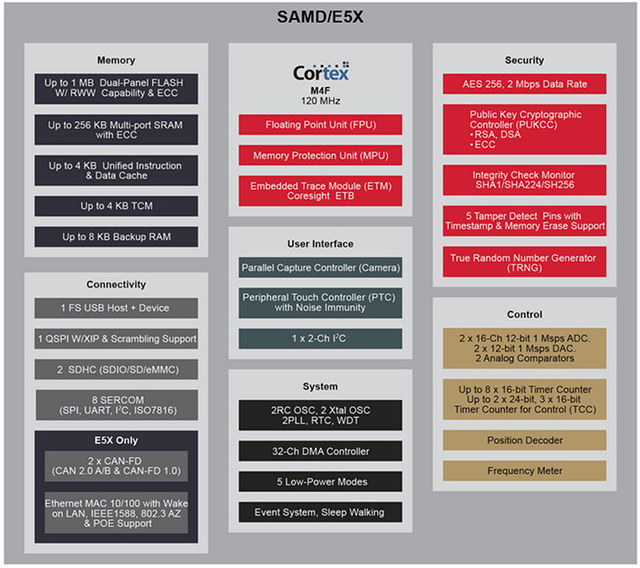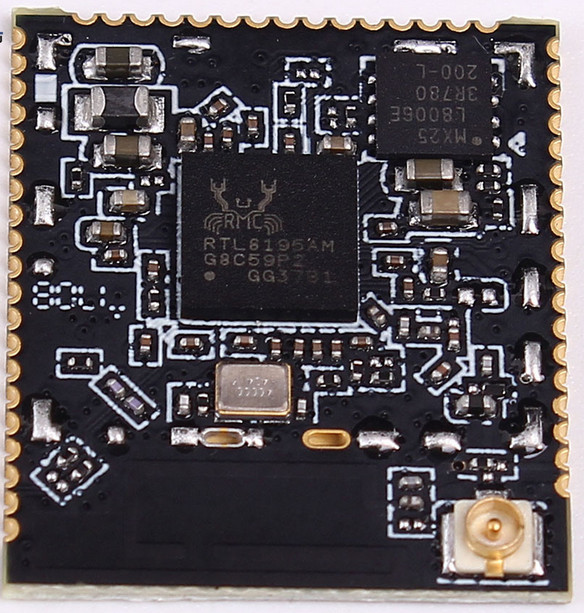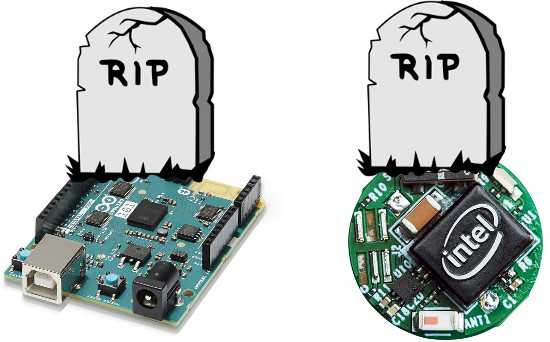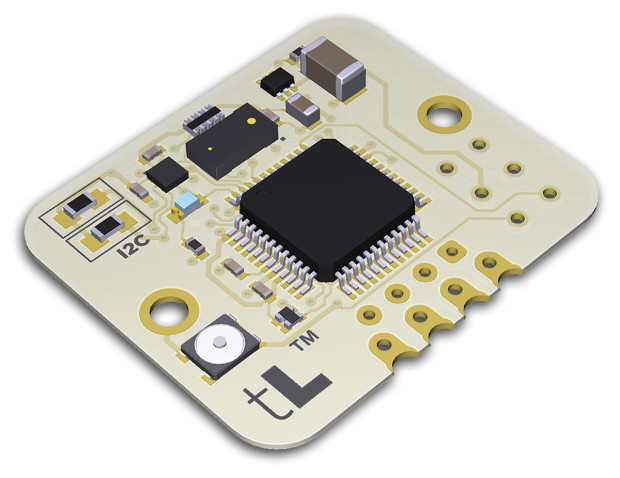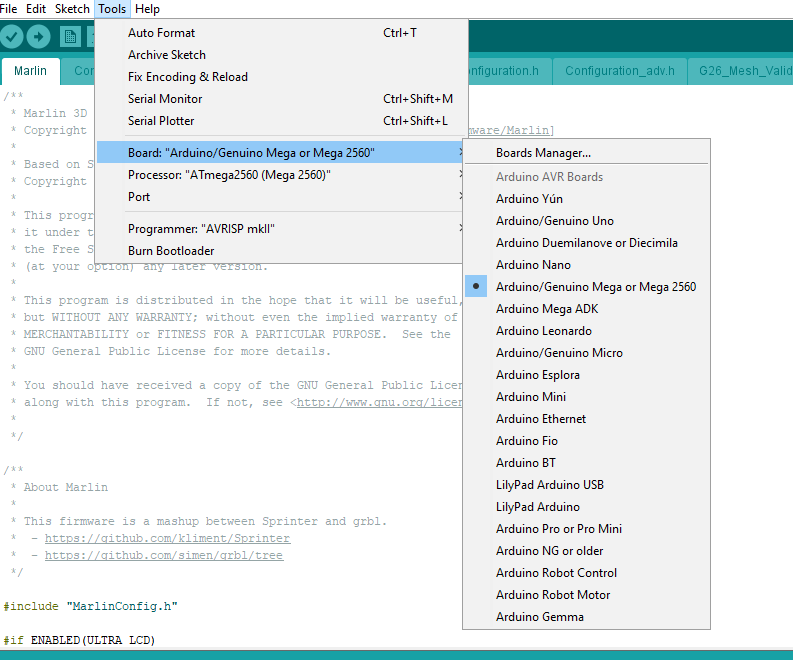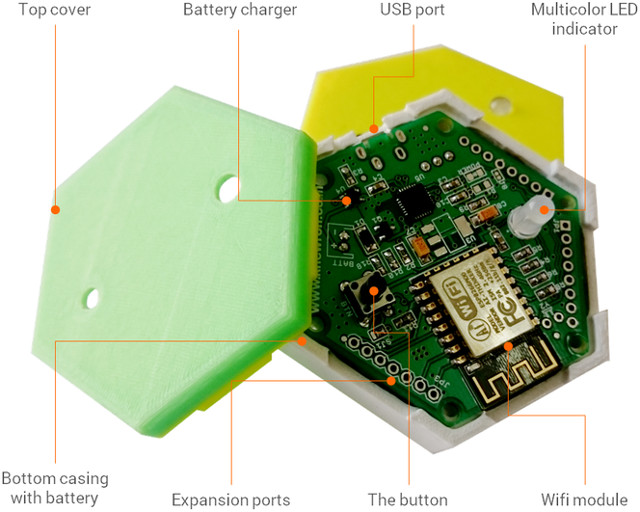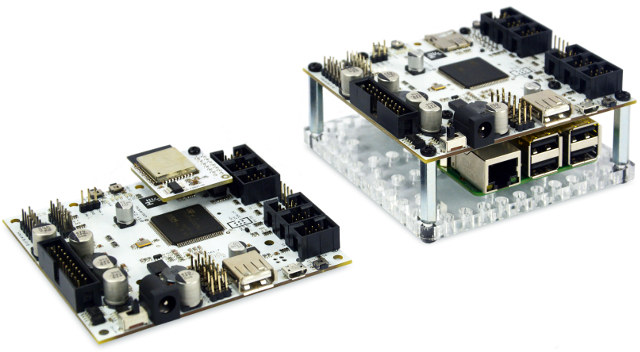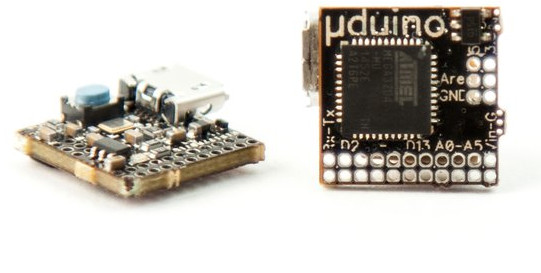Microchip has just introduced two new families of micro-controllers based on ARM Cortex-M4F with SAM D5x and SAM E5x series sporting up to 1 MB of dual-panel flash and 256 KB of SRAM both with ECC support. Both families also support QSPI flash with XIP (eXecute In Place) support, features an SD card controller and a capacitive touch controller, with SAM E5x family also adding support for two CAN-FD ports and Ethernet. Microchip SAM A5x/E5x key features and specifications: MCU Core – ARM Cortex-M4F core running at 120 MHz with single precision Floating Point Unit (FPU) Memory – Internal memory architecture with user configurable Tightly Coupled Memory, System memory, Memory Protection Unit and 4KB Combined I-cache and D-cache; up to 256KB ECC SRAM, up to 1MB ECC flash Storage I/F – Quad Serial Peripheral Interface(QSPI) with Execute in Place (XIP) Support Peripherals Up to 2x Secure Digital Host Controller (SDHC) […]
Realtek RTL8195AM Ameba WiFi + NFC Module Sells for $9 Shipped
Last year, Realtek Ameba IoT SoCs and development kits launched with boards such as Ameba Arduino, and later, the family got some buzz thanks to $2 RTL8710AF modules like Pine64 Padi IoT stamp, which looked competitive priced against ESP8266 SoC, and featuring an ARM Cortex-M3 core. Back to 2017, ESP8266 appears to still be the preferred platform for makers, and the community around Reatek Ameba processor is relatively small, but maybe the solutions are being integrated into commercial products rather than hobbyists project. Today, as I browsed the web, I noticed that are also some Realtek RTL8195AM module with WiFi, and NFC starting with an “Realtek Ameba-RTL8195AM WiFi & NFC Module” I first found on DFrobot for $15 per unit, but after spending a bit more time searching, I ended finding what looks like the same model for $8.99 including shipping on IC Station. RTL8195AM module (MJIOT-AMB-02) specifications: SoC – […]
Intel Curie Module, Arduino 101 Board Are Being Discontinued (Too)
Intel seems to have completely given up on its efforts to bring products specific to the Internet of Things. After discontinuing Intel Edison, Galileo and Joule boards & modules last month, forcing companies to look for alternatives, the company has now issued product discontinuance / end-of-life notices for Intel Curie Module and Arduino 101 board, itself based on the Curie module. The two product change notification notice can be found below for: Select Intel Curie Module Products – PDF Select Intel Arduino 101 Products – PDF The use of the word “Select” would normally mean some versions of the module and board won’t be affected, but I fail to see which ones here, as AFAIK there’s only one Arduino 101 board, and two variants of Curie modules, all three to be discontinued. Arduino 101 will be phased out faster with the following milestones: July 17, 2017 – Product Discontinuance Program […]
TinyLIDAR is a $15 LIDAR MCU Board based on STMicro VL53L0X Time-of-Flight Ranging Sensor (Crowdfunding)
LIDAR (Light Detection and Ranging) technology is used in autonomous car, drones, and some smartphones, in order to get an object position just like RADAR systems, but instead of using radio frequencies, it relies on infrared signals. High speed, long range LIDAR systems can cost several hundred dollars, but if you’d like to experiment with the technology, or your project would work just fine with 60 Hz scanning and a 2 meter range, tinyLIDAR could be a fun board to play with using Arduino compatible boards. TinyLIDAR specifications and features: LIDAR Sensor ST VL53L0X Time-of-Flight (ToF) ranging sensor 940nm laser VCSEL Up to 2 meters range Up to 60 Hz sampling rate even with Arduino UNO board Up to 3% accuracy with mm precision MCU – Unnamed dedicated 32-bit MCU (likely STM32) used to abstract the ST PAL API into simple I2C commands Host Interface – 4-pin I2C header; re-configurable […]
Tevo Tarantula 3D Printer’s Large Dual Extruder Auto Bed Level Sensor Firmware Upgrade
What a title. Just a quick update on the Tevo I am reviewing. I didn’t want to upgrade the firmware, but I read so many posts on Facebook about it I took the plunge. I didn’t like was the firmware that came with it. It only did a 3 point level, and seemed to go outside the build plate dimensions. The first 2 printers I have reviewed were Marlin, so it was what I am most familiar with. I used Jim Brown’s Marlin fork as a base. It was missing dual extruder and auto level sensor in the pre-configured profiles. It took a while, but I was able to add the extra features. The auto bed level sensor connects to where the normal Z end stop sensor is connected. I would like to warn you to warm your bed for 5 minutes for the best reproducible results. I tested several […]
1btn is a Battery Powered Open Source ESP8266 WiFi Button
If you have some WiFi power switch like Sonoff TH16 at home, you’d normally control them using a mobile app or a web interface. This is all good, but getting your phone, unlocking it, and launching the app to turn on or off an appliance is not the most efficient way to operate, and in some cases, some people in the household may not know how to use a smartphone. Physical WiFi buttons are the solution, but there aren’t so many for sale. We’ve seen previously it was possible to hack an Amazon Dash, but it’s not really that flexible, and 1btn could potentially be a better option, as it’s open source and based on Espressif ESP8266 WiSoC. 1btn specifications: WiFi Module – ESP-12F based on Espressif ESP8266 MCU – Microchip Atmel ATmegaxx8 AVR MCU Connectivity – 802.11 b/g/b WiFi up to ~50 meter range USB – 1x USB port […]
Husarion CORE2 STM32 Board for Robotics Projects Works with ESP32, Raspberry Pi 3, or ASUS Tinkerboard
Husarion CORE2 is a board designed to make robotics projects simpler and faster to complete with pre-configured software and online management. Projects can start using LEGOs, before moving to 3D printed or laser-cut version of the mechanical parts without having to spend too much time on the electronics and software part of the project. Two versions of the board are available: CORE2 combining STM32 MCU with ESP32 WiFI & Bluetooth module, and CORE2-ROS with STM32 instead coupled to a Raspberry Pi 3 or ASUS Tinkerboard running ROS (Robot Operating System). Both solutions share most of the same specifications: MCU -STMicro STM32F4 ARM CORTEX-M4 MCU @ 168 MHz with 192 kB RAM, 1 MB Flash External Storage – 1x micro SD slot USB – 1x USB 2.0 host port with 1A charging capability; 1x micro USB port for debugging and programming via FTDI chip Expansion Headers hRPi expansion header for CORE2-ROS […]
μduino May Be the World’s Smallest Arduino Board (Crowdfunding)
OLIMEXINO-85S may have held the title of the world’s smallest Arduino (compatible) board for the last few years, being barely bigger than a micro SD card as it measures about 16.9 x 12.7 mm, but there’s a new mini champion in town with μduino board measuring just 12 x 12 mm. μduino board specifications: MCU – Microchip Atmel ATMEGA32U4 8-bit AVR microcontroller @ 16 MHz with 2,560 bytes of RAM, 32KB flash, and 1024 bytes of EEPROM (Arduino Leonardo compatible) I/Os 6x Analog I/O ports 14x Digital I/O ports (including Rx/Tx) including 7x PWM 1x Analog reference voltage port 1.27mm pitch Programming / Debugging – 1x micro USB port; 6-pin ICSP programming ports (load custom bootloaders, program other boards, etc) Misc – Status LED, reset button Power Supply – 5V via micro USB port; 5V voltage regulator (accepts up to 16V DC); 2x 5V ports; 2x ground ports Dimensions – 12x […]


